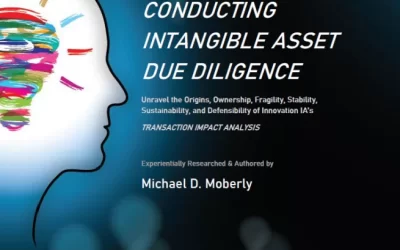Michael D. Moberly March 8, 2010
In Stone v. Ritter (but also, In Re Caremark and In Re Disney) Delaware courts drew attention to board/director oversight (management, stewardship) of compliance programs and company assets.
As we know, court decisions carry the potential to serve as, if not broad precedents, at least as a basis for framing future tactical – strategic (litgation) arguments in similar cases. The courts’ opinion in Stone v. Ritter, in my view, carries such potential particularly when board/director liability is at issue relative to the effectiveness, and even perhaps questioning how actually engaged boards’ were, in the oversight (stewardship, management) of a company’s compliance programs.
An inferrence I drew from reading the court’s decision (Stone v. Ritter) and Rebecca Walker’s fine paper titled ‘Board Oversight of a Compliance Program: The Implications of Stone v. Ritter’, is that Stone will come to be viewed (applied) not so much for its specific focus on board oversight of compliance programs per se, as it will for bringing operational clarity to the definition of ‘board oversight’. That is, describing the key elements – what constitutes (basic requisites of) oversight (e.g., stewardship, management) of a company’s assets, and by extension, its intangible assets.
And, when 65+% of most company’s sources of revenue, value, and building blocks for future growth and sustainability lie in – are directly related to intangible assets, bringing operational clarity to this increasingly critical arena is a good thing! Particularly, that is, when the elements, as outlined below, will surely not be lost on, or overlooked by plaintiff’s counsel.
Integral to this of course is enterprise risk management (ERM) and its perspective of being ‘proactively defensive’. Therefore, company management/leadership teams, legal counsel, and boards/directors in general, would be well served by becoming familiar with these elements to position themselves to more effectively address – meet boards’ (fiduciary) duties, i.e.,
‘…ensuring the board is kept apprised of – receives accurate information in a timely manner that’s sufficient to allow it and senior management to reach informed judgments about the company’s business performance and compliance with the laws…’ by
1. Expanding the type of information that boards receive.
2. Scheduling meetings with members of the management team to inquire about:
a. how the company’s (internal, external) reporting system is structured
b. the company’s investigation policies relative to suspected incidences of (internal, external) misconduct
c. employee perceptions of the company’s reporting – compliance – audit programs, and sufficiency of employee training in this arena.
3. Structuring the company’s reporting (compliance) programs to include sufficient resources and authority for effective execution.
4. Examining the manner in which the company actually conducts risk assessments, prioritizes its risks, and actually addresses (prevents, mitigates) those risks.



